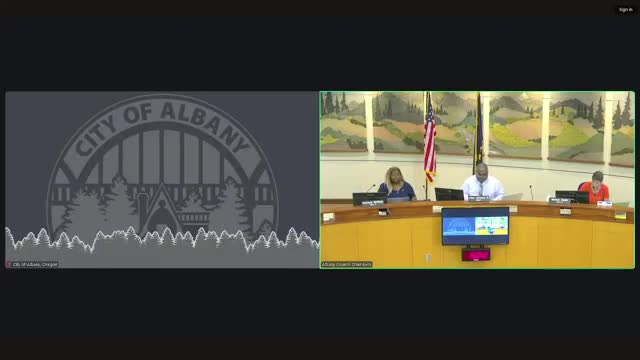Regional agencies brief Albany council on shared services as food insecurity rises
Get AI-powered insights, summaries, and transcripts
Subscribe
Summary
Leaders from the Oregon Cascades West Council of Governments and Community Services Consortium told the council they are coordinating services to reduce barriers for low‑income seniors and households facing food instability, and described local assistance numbers and mounting demand.
Representatives from the Oregon Cascades West Council of Governments and the Community Services Consortium (CSC) presented annual reports to the Albany City Council on Aug. 27 and described growing food insecurity and a continuing push to coordinate regional services.
Ryan Vogt, executive director of the Cascades West Council of Governments, and Kayla Hatley, agency director for the Community Services Consortium, told the council the two organizations have been intensifying collaboration over the past five years to reduce duplication and create a “no-wrong-door” experience for people who need multiple services. Vogt said the agencies seek administrative efficiencies — for example by consolidating some human resources functions — so more funding can be directed to direct services.
Hatley reported specific local assistance delivered by CSC. She said CSC’s utility-assistance program spent $1,400,000 for Albany residents in the first two quarters of the fiscal year. For the year running July 1, 2024, through June 30, 2025, she said CSC served 336 Albany households with rental assistance; of those, 74 households were rehoused and 232 received eviction-prevention services. Since the start of the current fiscal year, she said CSC assisted 22 households at risk of eviction and rehoused three individuals who were homeless.
Vogt and Hatley emphasized the agencies serve overlapping populations — particularly low-income seniors and households with food instability — and said state and federal policy changes, as well as changes to SNAP and Medicaid eligibility, are likely to increase demand for regional safety-net services.
Councilors thanked the presenters and raised interest in continued coordination with city programs, including the city’s water assistance program. Vogt and Hatley said they would continue to provide follow-up information to the council as needs evolve.
The presentations were informational; no formal council action was taken on the reports during the meeting.
